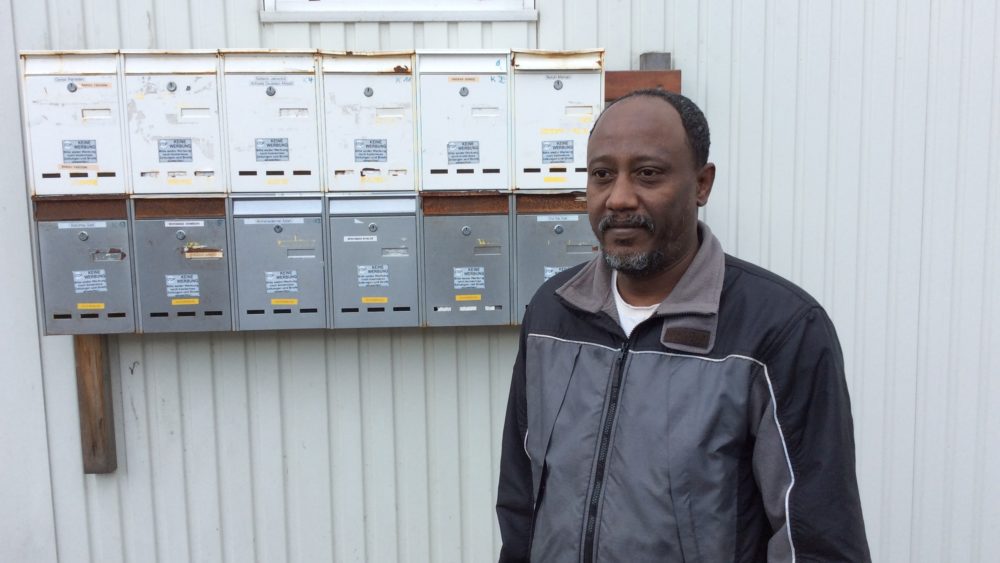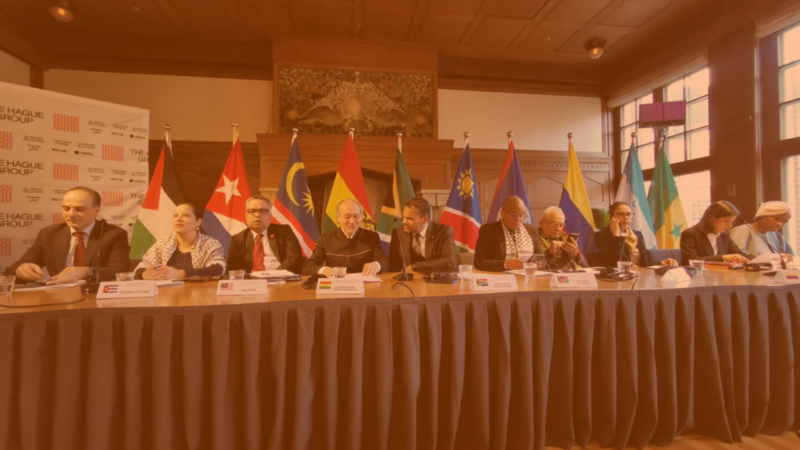For a brief moment in February 2020, all seemed right with the world for Ahmedin M. He had just received the news from his wife, Hawa: “We have the visas! We can join you in Germany!”
Before that, Ahmedin M. had suffered the agony of a typical Eritrean escape story. First, he emigrated to Sudan with his wife and son, Sallah, because life in Eritrea had become almost impossible. Opposition parties, independent media, civil society organisations and unrecognised religious communities were prohibited from any activity. The rights to freedom of expression and peaceful assembly were severely restricted. Military service was mandatory and often extended indefinitely. Thousands of nonviolent political prisoners and other dissidents were arbitrarily detained under extremely poor conditions. Torture and other cruel, inhuman and degrading treatment were commonplace. Large numbers of Eritreans continued to seek refuge abroad as the economy was in tatters and people were unable to feed themselves.
In Sudan, it was also impossible for the M. family to build a safe life. So, despite Hawa’s pregnancy, they made a momentous plan: Ahmedin would try to make his way to Europe. He wanted to settle there and then fetch his family. He fought his way through the Libyan desert, he survived the boat trip across the Mediterranean, he crossed Italy and finally arrived in Bornheim – a small town near Cologne – in Germany.
That was in September 2015. Many Germans showed solidarity with refugees and welcomed them; Chancellor Merkel took selfies with refugees, and the mood was good. For Ahmedin, it was a happy arrival. Everything became even more perfect when Ahmedin was recognised as a so-called “subsidiary protected person.” Subsidiary protection is granted to people who have not been given refugee protection or eligibility for asylum in the asylum procedure, but who are at risk of serious harm in their country of origin, due, for example, to war or civil war.
Hawa, however, first had to travel from Sudan back to Eritrea because they could not sustain themselves there without male support and it was safer for her to give birth at home. She was thus in the very country where Germany believed that persons were at risk of serious harm. Under European – and therefore German – law, a serious risk exists in the case, for example, of the imposition or execution of the death penalty, torture or inhumane or degrading treatment or punishment, or a serious individual threat to the life or integrity of a civilian as a result of indiscriminate violence in the context of an international or internal armed conflict.
Understandably and also justifiably, Ahmedin was very worried about his family and wanted to bring them to Germany. So Hawa first made her way to Cairo, Egypt, with the baby and her firstborn, since a distant relative and other acquaintances live there and she hoped to reach Europe more easily from Egypt.
Then came the big setback for Ahmedin’s family: In March 2016, the German Bundestag passed a law suspending family reunification for people with subsidiary protection. So the family was stuck in Cairo. It was not until the end of July 2018 that applications for family reunification were allowed again by the German authorities. By this point, Ahmedin had already been separated from his family for three years, and he had yet to meet his youngest son.
What followed was a difficult walk through government agency procedures. The embassy requires national passports from all visa applicants, and for a visa based on family reunification, a marriage certificate as well as all birth certificates. The marriage certificate had to be issued by state authorities; this is extremely unusual in Eritrea, where almost all couples marry traditionally.
As a rule, a “settlement tax” must be paid for valid national passports, an insurmountable problem for destitute people. The mother had to organise the children’s birth certificates four times: The first time, they were not accepted by the Eritrean Embassy in Cairo; the second time — this time issued by an authority in Eritrea — a birthdate was wrong; the third time, a stamp was missing; and only on the fourth attempt did the German Embassy accept the certificates.
Each time, Hawa had to establish an arduous, time-consuming line of communication with her family of origin to try to organise valid documents for her and her relatives, fugitive citizens who, in principle, the Eritrean state does not even want to be abroad and settle there.
Some good news?
Then, on February 6, 2020, finally the redeeming news: Hawa was granted a national visa of category D, “family reunion,” for herself and the children! They borrowed €1,000 for the plane ticket.
On March 22, 2020, EgyptAir flight MS785 was scheduled to land in Frankfurt am Main at 2:10 p.m. But four days earlier came the next shock: The European Union had closed the borders due to the coronavirus pandemic.10 Flights from third countries were no longer allowed in, and only certain groups of people were allowed to enter.
There was a great deal of chaos. Which groups of people, exactly? The Frankfurt Federal Police confirmed that family members of third-country nationals with residence permits were allowed to enter. However, the embassy refused to include these persons on the emergency return flights organised by the Foreign Office, arguing that these persons were not allowed to enter. In fact, a growing contradiction developed between the Foreign Office and the Ministry of the Interior.
While the former consistently denied the possibility of entry, the Ministry of the Interior most recently confirmed, in an e-mail dated May 13, 2020: “According to this, there is an important reason for travel for the Eritrean wife and the two minor children, taking into account family aspects.” The problem at this point: in the meantime the visa had expired.
The family exercised patience. Certainly, it was a special situation, but eventually the pandemic would pass. By telephone, the embassy had promised that as soon as entry was possible again, the mother and the children would get a new visa without any problems. On July 1, 2020, the entry ban was relaxed. The Ministry of the Interior wrote in a mail to the embassies:
“Third-country nationals whose D visa would have entitled them to enter Germany after March 15, 2020, but for whom the visa could not be used to enter Germany due to the travel restrictions and the visa subsequently expiring abroad, may apply for a so-called “Neuvisierung” (new visa) at the German mission abroad responsible for the initial issuance as soon as the travel restrictions have been lifted to that extent. A period of one month is granted for the application for a new visa. The deadline begins when the possibility of submitting an application is announced on the website of the diplomatic mission or consular post. After the expiration of the deadline, the person concerned is free to submit a new visa application. In principle, there is no processing fee for a new visa.”
Embassy problems
However, the German Embassy in Cairo has never published the possibility of applying for a renewal. Not until today. Mails were written, attempts were made to get a temporary order to grant an appointment, Mrs. Hawa M. personally asked for admission on the spot — in vain. However, it was not the case that the embassy did not grant appointments at all: for example, an Egyptian student was granted an immigration permit as part of a special appointment, and another family also received a new visa, but not the M. family.
In Germany, the issue of family reunification is highly controversial. In coalition negotiations with the SPD at the start of 2018, Federal Interior Minister Horst Seehofer warned that up to 300,000 family members would want to come to Germany if family reunification with beneficiaries of subsidiary protection were made possible again.
Saxony-Anhalt’s Interior Minister Holger Stahlknecht even spoke of the fact that “up to 800,000 more people could come” when it comes to the reunification of beneficiaries of subsidiary protection; one must also think about social peace in the country and must not overburden the population (German Press Agency). In the far-right political spectrum, even larger numbers were cited: In October 2017, the chairman of the AfD’s parliamentary group in the Bundestag, Alexander Gauland, predicted “a migration wave of around two-and-a-half million people to Germany in 2018 alone” as a result of “unrestricted family reunification for refugees.”
In fact, family reunification for beneficiaries of subsidiary protection does not involve millions, nor hundreds of thousands, but, according to currently available figures, a total of less than 50,000 people.
Eighteen months after the regulation came into force, it is clear that exactly 20 percent (one fifth) of the pledged visa quota has not yet been filled. After 18 months, German missions abroad have issued only 14,404 visas out of the 18,000 potential visas politically pledged by the end of January 2020.
Article 6 of Germany’s Basic Law states: “Marriage and the family shall enjoy the special protection of the state. The care and upbringing of children is the natural right of parents and a duty primarily incumbent upon them. The state shall watch over them in the performance of this duty.”
Article 9 of the Convention on the Rights of the Child declares: “States Parties shall ensure that a child shall not be separated from his or her parents against their will.”
Neither of the above changes anything. Nor does the Christian self-image of the party currently represented in the government: “Family policy is a matter close to the heart of the CDU. In our family policy, we rely on respect instead of paternalism. Families should be able to decide for themselves how to shape their lives. They deserve our full support for this. And we still have a lot of plans to make everyday life easier for families.”
Families from foreign countries are not equal in Germany. Or is this a European problem? Ahmedin understands nothing about European or German politics. For him, it is a painful fact that he still has to be separated from his family. In the meantime, Egypt is tightening its treatment of foreigners without the right to remain; there is a risk that Mrs. Hawa M. will have to go back to Eritrea before she can get a visa for Germany.
Ahmedin M. has exhausted his psychological reserves — he does not know what to do. Hawa no longer receives any support from the UN, which had been taking care of her as a refugee. Everyone hopes this nightmare will soon come to an end.
This campaign is part of DiEM25’s Campaign Accelerator project, a project where we support individual activists to make targeted campaigns on local issues they feel passionate about!
Do you want to be informed of DiEM25's actions? Sign up here















